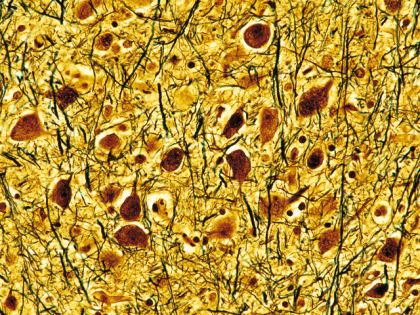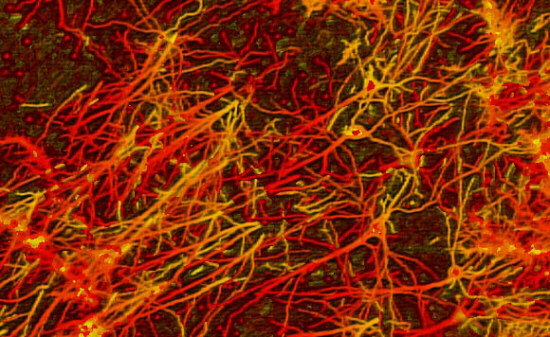 Jay Michaelson
Jay MichaelsonThe first step is remembering what we do know. I know that what the mystics promise, happens. I have experienced what they have described, by proceeding along their recommended practices. Thus, if my experience is wrong, it's not just that I'm deluded -- it's that all mystics are deluded. This is a critical distinction, because there are thousands upon thousands of mystics who, across history, have devoted their entire lives to contemplative practice, with plenty of doubt and self-examination along the way. Thus, if I am in delusion, so are thousands of other contemplatives across history.
Second, and relatedly, this testimony is "expert" testimony. Contemplatives are precisely those people who have devoted the most attention to the mind and the spirit. I wonder what would have happened if, at the Seder table, I had doubted the foundations of modern dentistry to my conversation partner, who was a dentist for thirty years. "Nope, you're deluding yourself. Flossing does not prevent gum disease." He would presumably point to studies, but I could point to counter-studies -- only, I suspect his data would be a lot more reliable than mine, because it was compiled by experts whose life work was the field in question. Likewise, the reports of monks and nuns and mystics, are "expert" testimony. Who are you inclined to believe more -- the doubter who has never once explored these pathways, or the expert who has spent her life doing so?
Third, and more subjectively, there is a sense of certainty during the experience of mystical union that is, in my experience at least, almost unparalleled. It doesn't just seem true; it feels truer than anything I've ever felt before. It is neither an inference nor a vague sense of the sublime; it is more certain than knowing your name, or knowing that you're seeing these words. It feels like "Yes, this is it. This is the core truth. This is what you have been looking for your whole life." Sometimes it carries a sense of amazement; sometimes it doesn't. At times, it feels calm; other times, it's actually very funny. But the degree of certainty it carries is beyond description.
Now, the sense of certainty is not enough. Everyone's been certain of something that turned out to be wrong -- e.g., he loves me, he loves me not. Religious people in particular hate to hear this, because their "rock of faith" is the foundation of their whole lives, and they deeply don't want to question it. But as one politician said last fall, you can be both certain and wrong.
In the case of mystical experience, though, it's worth refining the inquiry a bit more, and asking what we are really certain about, and what is constructed around it. This is what I am certain of my mystical experiences: there is a real love that arises, there is only "this moment." There is no separate self. That which is called the world is really arising only in Awareness -- not my awareness, or yours, but your real awareness; that of the real you, which is Who you really are.
There are already a lot of concepts in there, of course -- but note that the "God" concept is not, yet, one of them. This is a critical point. Suppose we were to say, for the moment, that the directly-perceived effects are all there is, without drawing any conclusions as to their source. In fact, if done without indulging in too much doubt, doing so has several benefits.
First, one can see even the most wonderful, rapturous mystical states as just a mind-state. Granted, it is a very pleasant mind-state, but, like all very pleasant things, it can turn sour with too much attachment -- and it passes, and it's devoid of separate reality, just like everything else. If we are operating within a theistic worldview, the Infinite is really Infinite; although naturally more delightful, a mind-state of union with God ought not create the false belief that God is not here, in this moment, as well. So, even if the mind-state is one of devekut, of cleaving to God, it will pass, and too much yearning for one kind of encounter with God can cause one to devalue all the others. Of course, if we are operating within a non-theistic worldview, not reifying the experience, or inferring stories about it, is a crucial step toward discerning the truth. In either case, simply letting the experience be -- without any attempt to prove anything -- allows a relaxation into the experience that allows it to be appreciated for what it is, rather than for what the ego may want it to be.
 Thus the attitude of "the effects are all there is" leads one to more carefully notice those effects, rather than jump into a story about what is happening vis-a-vis the Divine. This leads to a second benefit, which is a revaluing of the experience itself. This mind-state (devekut, samadhi, unio mystica) isn't significant because of a story about what it represents; it's significant because it engenders more compassion and more wisdom. Conversely, a mind-state which may have felt very "mystical" but which brings about cruelty or unskillful behavior is easily judged by its fruits, rather than by the supposedly mystical feeling that accompanied it. And one finds in almost every contemplative tradition, theistic and non-theistic, precisely this metric for evaluating truth. The stories cannot be verified; but the effects can.
Thus the attitude of "the effects are all there is" leads one to more carefully notice those effects, rather than jump into a story about what is happening vis-a-vis the Divine. This leads to a second benefit, which is a revaluing of the experience itself. This mind-state (devekut, samadhi, unio mystica) isn't significant because of a story about what it represents; it's significant because it engenders more compassion and more wisdom. Conversely, a mind-state which may have felt very "mystical" but which brings about cruelty or unskillful behavior is easily judged by its fruits, rather than by the supposedly mystical feeling that accompanied it. And one finds in almost every contemplative tradition, theistic and non-theistic, precisely this metric for evaluating truth. The stories cannot be verified; but the effects can.
Third, because there is no attribution of "God" to the mystical experience, certain forms of doubt -- i.e., the doubts throughout this entire essay as to whether the experience is "real" -- simply do not arise. Of course the experience is real; it is happening. Without a God-concept, what else does there need to be? One problem with the God concept is that it simultaneously carries no attributes and a lot of attributes. I provide an account of a sense of union, and it is read as a union with God. But it doesn't stop there: it's a God which is presumably omnipotent, omnipresent, and so on. Yet are these attributes present in the experience? What do I really know about the experience of union? I don't know that it's with an omnipotent Being who gave his only begotten son to redeem the sins of mankind, or liberated the Israelites from Egypt. My heart feels it, and, again, it matches what mystics of multiple religious traditions say about their relationship with the Divine Beloved. But really, those are ascriptions onto the experience, projections, connections. Myth resonates -- but it also can insinuate itself into an experience which, on its own, is bare of such story. And since mystical experience is very powerful, with a strong sense of certainty, and strong attachment, it can itself be dangerous. When mystical attachment gets married to a myth (as discussed in greater length in my essay from last year, "Passion and Violence"), dangerous results can occur. Passion plus myth equals extremism.
But it's not just Lockean prudence that keeps me from ascribing too much to my mystical experience. That would, I think, be rather dry. Don't we want to dance with God? To sing poems and chant hymns? This isn't just some Buddhist "mind-state" -- this is God! So, no, it isn't just being politically correct; rather, I think that if we keep our mystical experience free from theological associations, we can come to love God even more.



Golden Calf
Jacob J. Staub
Israel on Campus
A Conversation with Sam Brody and Zach Gelman
Samaria for Rent
Margaret Strother-Shalev
Does Mysticism Prove the Existence of God?
Jay Michaelson
Patrolling the Boundaries
of Truth
Joel Stanley
The Wheel World
Dan Friedman
Archive
Our 700 Back Pages
Zeek in Print
Summer 2005 issue now on sale
About Zeek
Mailing List
Contact Us
Subscribe
Tech Support
Links
Limited Time Offer
Subscribe now and get
two years of Zeek for
25% off regular price.
Click this button
to purchase:
From previous issues:
Two Incidents at the Cafe Kamienica
Out of Bounds
The Merchant of Venice and the New Ruling Class
Gordon Haber
Angela Himsel
Karin Roffman